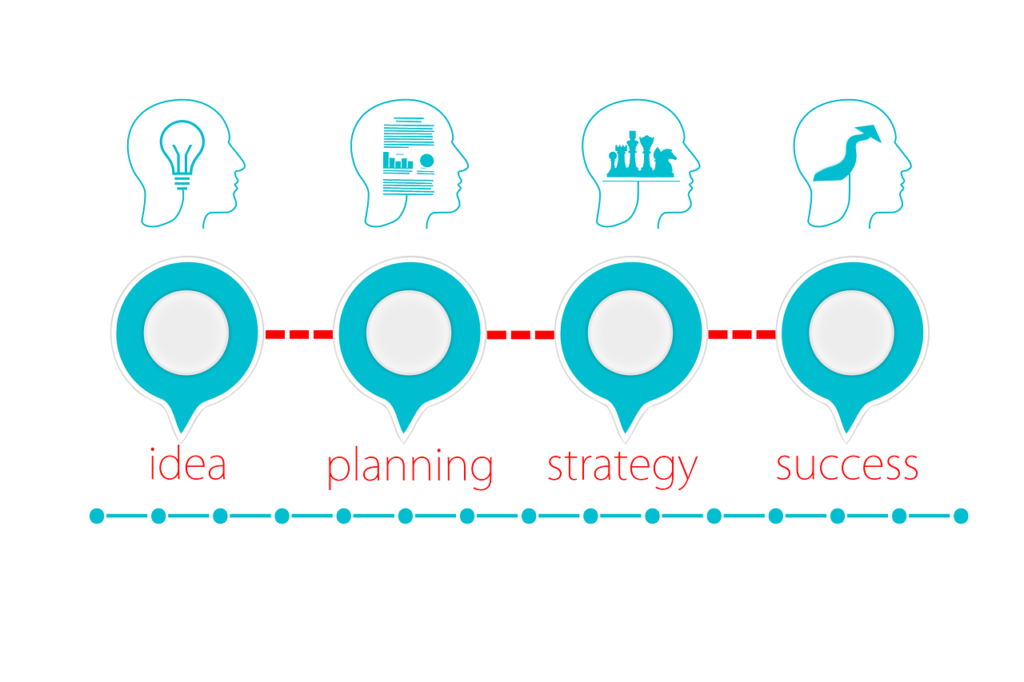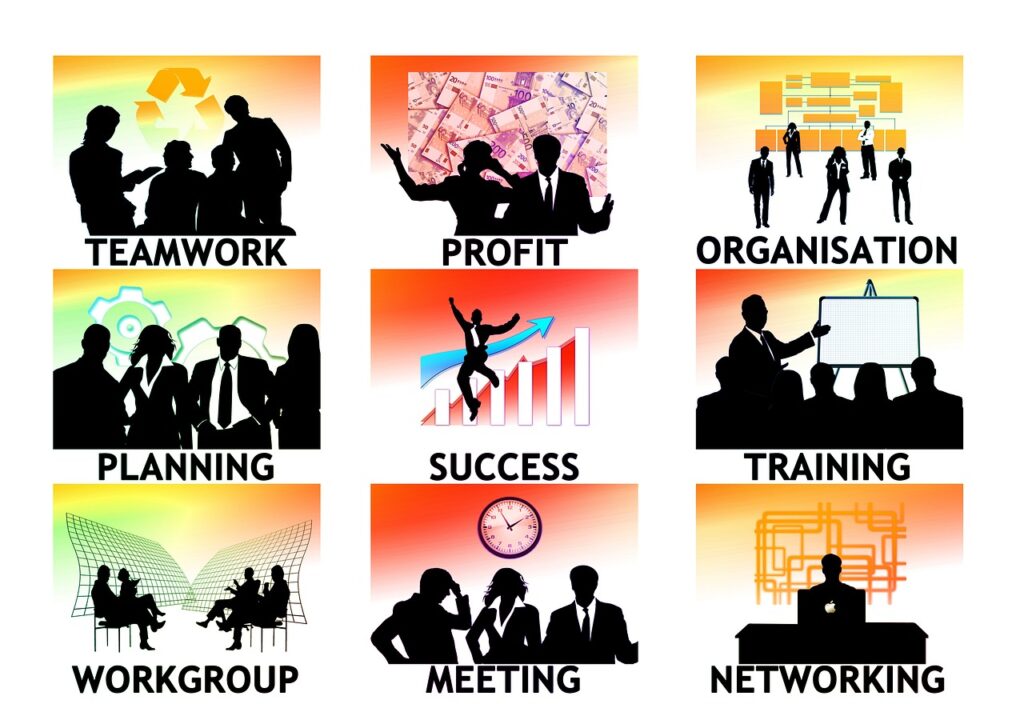Career planning plays a pivotal role in achieving professional goals, guiding individuals through a process of self-assessment, goal setting, and action plan development. A well-structured career plan helps to align personal aspirations with realistic expectations in the job market. Pathways to Advancement provides expert guidance and resources, empowering adult learners and non-traditional students to navigate their career journey with confidence.
Self-Assessment: The First Step in Career Planning
A thorough self-assessment is the foundation for effective career planning. It helps you gain a deeper understanding of your strengths, weaknesses, interests, values, and preferred work environment. This information allows you to explore career options that align with your personal and professional goals, ultimately setting you up for success and satisfaction in the workplace.
Identifying your personal strengths and weaknesses is essential to recognizing the roles and responsibilities that best suit your natural abilities. Reflect on your skills, knowledge, and experience to determine areas where you excel and areas that may require improvement. This process can be aided by utilizing self-assessment tools, seeking feedback from colleagues, or engaging in self-reflection exercises.
Evaluating your interests and passions is another key element of self-assessment. Consider what genuinely excites and motivates you, as well as the activities that bring you a sense of fulfillment. Pursuing a career that aligns with your interests increases the likelihood of long-term engagement and success in your chosen field.
Understanding your personal values and priorities is crucial to ensuring that your career aligns with your core beliefs and life goals. Consider factors such as work-life balance, social impact, and financial security when determining your priorities. Your values may influence the industries, organizations, and roles you choose to pursue throughout your career.
Finally, assessing your work style and preferred work environment is instrumental in finding a career that suits your individual needs. Identify whether you thrive in collaborative or independent settings, fast-paced or structured environments, and remote or in-person workplaces. Having a clear understanding of your preferred work style and environment will help you pursue career opportunities that are conducive to your personal and professional growth.

Researching Career Options
After completing a thorough self-assessment, it’s essential to research career options that align with your strengths, interests, values, and preferred work environment. This process involves identifying potential career paths, understanding the job market, evaluating the required education and training, and conducting informational interviews with professionals in the field.
Begin by using your self-assessment results to identify potential career paths. Consider various industries, roles, and organizations that align with your personal and professional goals. This exploration will help you narrow down your options and create a list of potential careers to investigate further.
Understanding the job market and industry trends for your chosen careers is crucial to making informed decisions about your career trajectory. Research job growth projections, emerging industries, and economic factors that may impact your chosen field. This information will help you determine the viability of your career options and identify potential areas for growth and opportunity. A great website for this is the Bureau of Labor Statistics.
Evaluating the required education and training for different career options is another essential step in the research process. Determine the credentials, certifications, and degrees needed for your desired roles. Consider whether pursuing additional education aligns with your personal priorities and if it’s a necessary investment to achieve your career goals. Pathways to Advancement can provide guidance and resources to help you explore educational opportunities relevant to your chosen field.
Finally, conducting informational interviews with professionals in your desired field offers valuable insight into the day-to-day responsibilities, challenges, and rewards of your chosen career. These conversations can provide helpful advice, expand your professional network, and ultimately guide your decision-making.
Setting Short and Long-Term Career Goals
Establishing clear and achievable career goals is essential for guiding your professional growth and measuring your progress over time. Both short and long-term career goals are crucial for maintaining focus and motivation, as well as ensuring that your actions align with your desired career trajectory.
Setting SMART (Specific, Measurable, Achievable, Relevant, Time-bound) career goals is a proven method for creating actionable and attainable objectives. This approach ensures that your goals are well-defined, trackable, realistic, and directly related to your career aspirations, with a clear deadline for completion.
Short-term career goals typically focus on immediate objectives and accomplishments, such as acquiring a specific skill, earning a certification, or securing a promotion. These goals serve as stepping stones that contribute to your long-term career aspirations and provide a sense of progress and accomplishment along the way.
Long-term career goals, on the other hand, involve broader objectives that may take several years to achieve. Examples include reaching a particular leadership position, transitioning to a new industry, or starting your own business. Long-term goals provide a sense of direction and purpose, helping you stay focused on your ultimate career aspirations.
Periodically revisiting and adjusting your career goals is essential for adapting to changes in your personal circumstances, industry trends, and the job market. Regularly assessing your progress and revising your goals as needed ensures that your objectives remain relevant and achievable, fostering continued growth and success in your professional life.

Developing an Action Plan
Once you have established your short and long-term career goals, creating an action plan is the next crucial step in achieving your desired career trajectory. A well-developed action plan provides a roadmap for success, outlining the necessary steps and resources to reach your objectives.
Start by creating a realistic timeline for achieving your career goals, considering the time needed for education, skill development, job searching, and potential career transitions. A clear timeline helps you stay on track and maintain focus, providing a framework for incremental progress toward your objectives.
Identifying necessary resources for career development is essential for efficiently reaching your goals. Consider education and training opportunities, professional certifications, and networking events relevant to your desired career path. Utilize resources such as Pathways to Advancement to explore available options and support your ongoing professional growth.
Seeking professional guidance from career counselors or mentors can provide invaluable insight and advice throughout your career journey. These experts can help you navigate challenges, explore opportunities, and refine your action plan as needed. Their support can be instrumental in achieving your career aspirations.
Finally, tracking your progress and celebrating accomplishments is vital to staying motivated and committed to your career goals. Regularly assess your achievements and milestones, acknowledging the effort and dedication required to reach each objective. This process fosters a sense of pride and accomplishment, motivating you to continue striving for success in your professional life.
Continuing Education and Professional Development
Engaging in lifelong learning and professional development is essential for maintaining a competitive edge in the job market and staying relevant in your chosen field. As industries and job requirements evolve, continuing education ensures that you possess the necessary skills and knowledge to excel in your career.
Exploring educational opportunities and certifications relevant to your career goals is crucial for staying up-to-date with industry advancements and expanding your skillset. Pathways to Advancement can help you identify and pursue programs, workshops, and certifications that align with your objectives and contribute to your professional growth.
Participating in professional associations and networking events is another valuable aspect of professional development. These opportunities facilitate connections with like-minded individuals and industry experts, broadening your network and providing access to potential job opportunities, mentorship, and collaboration. Networking events also offer a platform for sharing knowledge and staying informed about current trends and best practices in your field.
Lastly, staying informed about industry trends and advancements is essential for adapting to changes in your chosen career path. Regularly reading industry publications, attending webinars, and following thought leaders in your field can provide insights into new developments, emerging technologies, and potential areas of growth. Staying current with industry trends ensures that you remain an informed and valuable contributor to your profession.

Adapting to Change and Remaining Flexible
As industries evolve and the job market shifts, it’s crucial to remain adaptable and resilient in your career planning. Embracing change and maintaining flexibility in your career goals can help you seize new opportunities and navigate challenges more effectively.
Recognizing the inevitability of change in the job market and within chosen industries is the first step to staying agile in your career planning. Economic fluctuations, technological advancements, and changes in consumer demand can all impact your chosen field. By acknowledging these factors, you can better prepare for potential disruptions and adjust your career plans accordingly.
Embracing adaptability and resilience in career planning is essential for navigating periods of change and uncertainty. This mindset encourages continuous learning, skill development, and the pursuit of new opportunities, helping you stay relevant and competitive in the job market.
Being open to new opportunities and revising career plans as needed is a vital aspect of maintaining flexibility in your professional journey. Stay open to potential career pivots, explore emerging industries, and consider alternative pathways that align with your evolving interests and priorities. This openness allows you to capitalize on new opportunities and make informed decisions about your career trajectory.
During periods of change, seeking support from career counselors or mentors can provide valuable guidance, encouragement, and resources. These professionals can help you navigate challenges, explore new avenues, and refine your career plans, ensuring that you continue to progress and grow in your professional life.
Unlock Your Career Potential
Throughout this guide, we’ve emphasized the importance of career planning in achieving professional success. From self-assessment and goal setting to continuing education and embracing change, each step plays a vital role in unlocking your career potential. As you navigate your career journey, remember that Pathways to Advancement is here to support you. Our guidance and resources can help you make informed decisions and achieve your career goals. Don’t hesitate to reach out to us for assistance in unlocking the opportunities that await you.
Resources for Career Planning
Bureau of Labor Statistics: https://www.bls.gov/
Atlassian: How to Write Smart Goals – https://www.atlassian.com/blog/productivity/how-to-write-smart-goals
BetterUp: https://www.betterup.com/
Investopedia – SWOT Analysis Guide: https://www.investopedia.com/terms/s/swot.asp
Myers-Briggs Type Indicator Career Test: https://www.mbtionline.com/en-US/Products/For-your-career
National Career Development Association: https://ncda.org/aws/NCDA/pt/sp/resources



